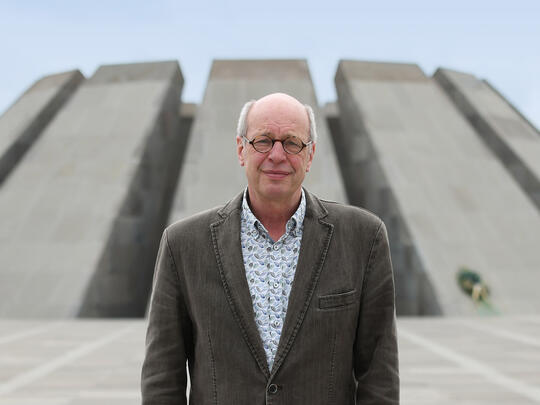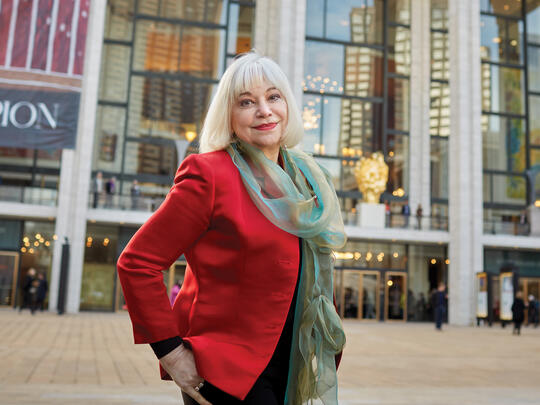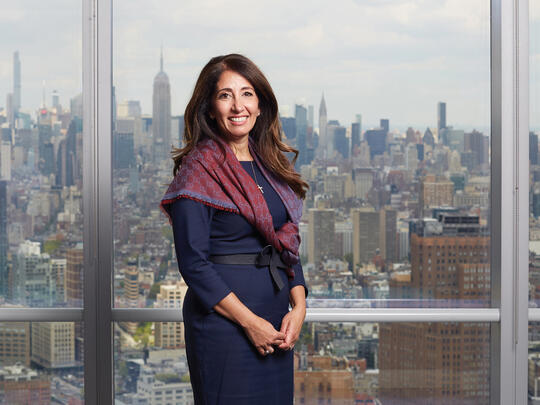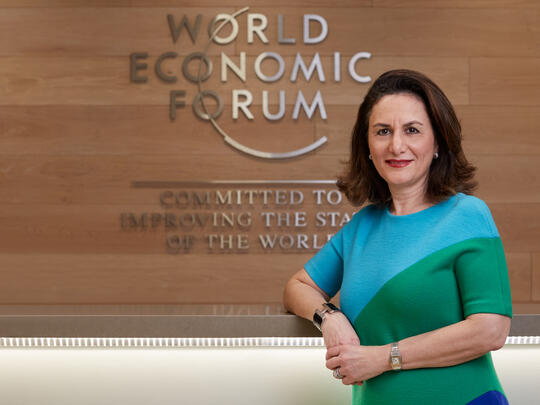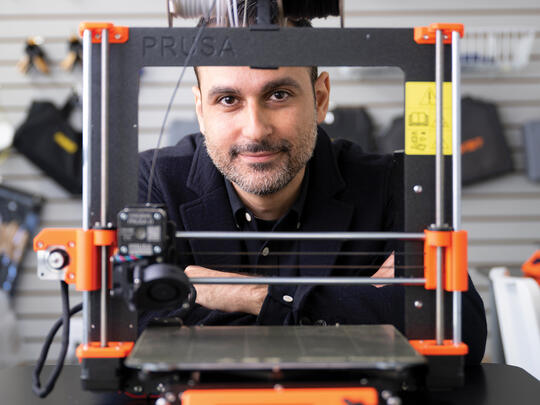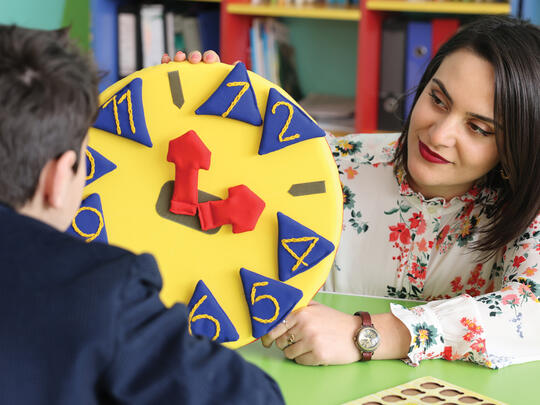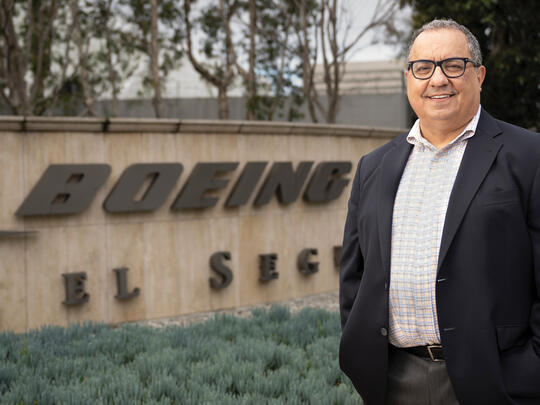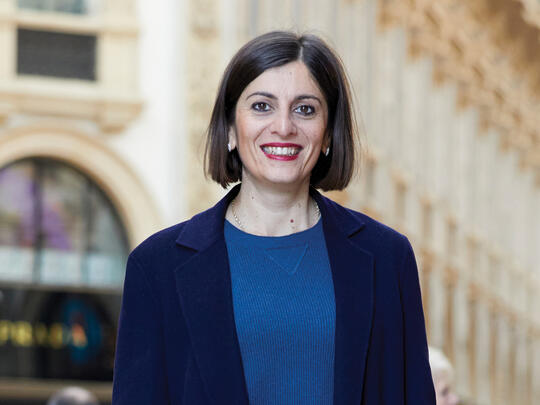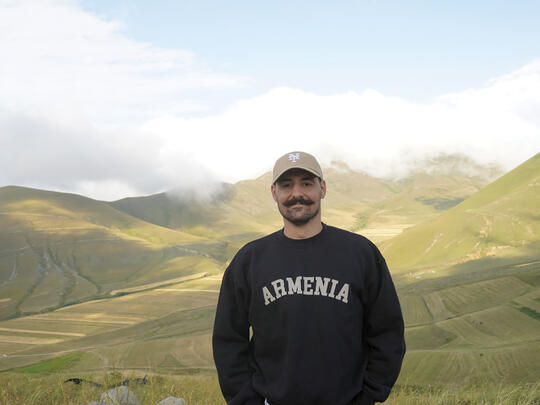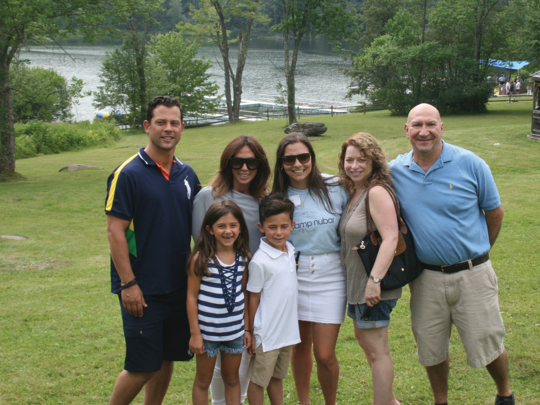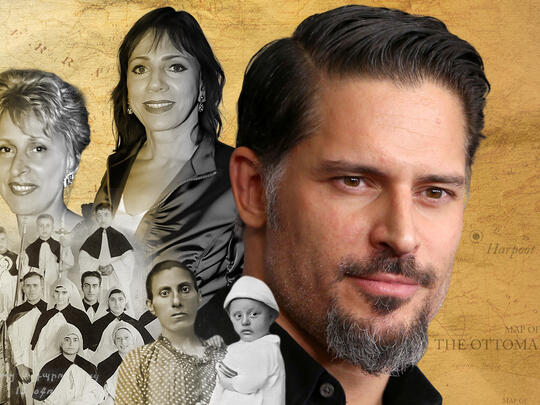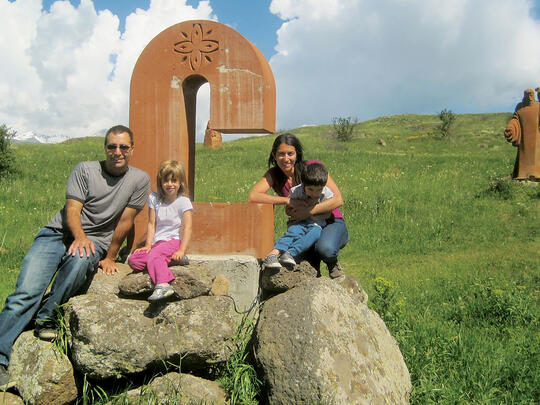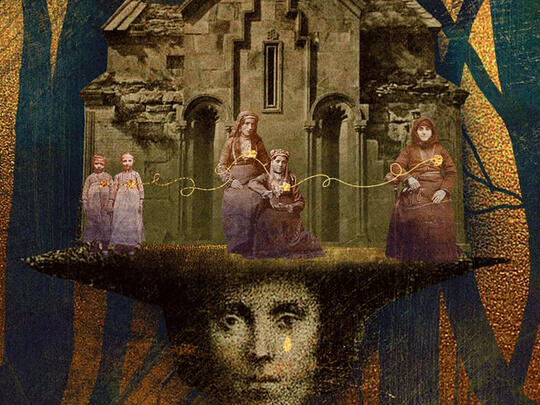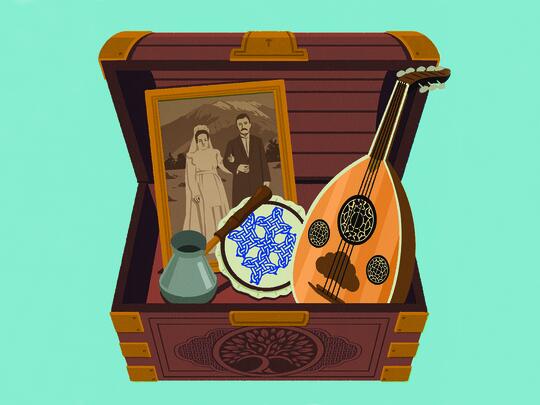
AGBU President Berge Setrakian’s Speech on the Occasion of the 110th Anniversary of AGBU in France
Madame Ambassador of Armenia to France, Ambassador Jonathan Lacôte, Mr. Representative of Artsakh in France, Member of European Parliament Madame Nathalie Loiseau, Regional President Madame Valérie Pécresse, Regional President Mr. Laurent Wauquiez, Deputy Mayor Mr. Arnaud Ngatcha, First Deputy Minister of High-Tech Industry in Armenia Mr. Gevorg Mantashyan, Mr. Ara Toranian, Co-Chair, Coordinating Council of Armenian Organizations of France (CCAF),
Dear presidents, dear chairs of our AGBU local chapters and Young Professionals groups, in France and in Europe,
Dear friends,
It is with immense emotion and great pride that I address you this evening to celebrate the 110th anniversary of AGBU's presence in France.
110 years and yet, the links between AGBU and France go back well beyond this date, because the vision of its founders was forged by the French spirit, culture, and education. Boghos Nubar, son of the Prime Minister of Egypt of yesteryear, and founder of AGBU, had chosen to study in France, where he completed his education at the Ecole Centrale. His philosophy and vision were guided by the values of the French Republic, which prioritize the spirit of solidarity and the sense of duty to the state.
Inspired by these values, he founded AGBU in 1906, in Cairo, alongside other men of vision and courage. AGBU's mission was stated forcefully: to contribute to the moral, economic, and social development of Armenians.
However, the founders’ plan to activate AGBU was delayed in response to the unfolding emergency.
The 1915 Armenian Genocide was the first major turning point of our organization, starting with the social emergency and followed by the urgent need to save the Armenians from the panturquist madness that aimed to destroy them.
AGBU continued its mission in creating refugee camps, orphanages, schools, even going so far as to set up expeditions to save women and children abducted from local tribes on the borders of Anatolia.
It is through the suffering of these orphans that a new nation was created - the Armenian Diaspora.
But while AGBU’s actions were deployed in the Middle East, the future of the Armenians was at stake in Europe. At Sèvres, the victorious Allies redrew the map of the Middle East. In 1920, Boghos Nubar, President of AGBU, headed the Armenian National Delegation at the Paris Peace Conference and carried the voice of the Ottoman Armenians for a Greater Armenia stretching from the Caucasus to the Black Sea, under the mandate of the League of Nations. Unfortunately, his efforts were in vain as the Treaty of Lausanne put an end to this hope.
Meanwhile, there were endless lines of Armenian immigrants flocking to the coasts of Syria, Lebanon, the United States, Latin America, and the port of Marseilles. And it is here in Marseilles, where the first French chapter of AGBU was founded in 1910.
In 1921, the decision was taken to transfer the global headquarters of AGBU from Cairo to Paris, prior to moving to New York in the 1940s due to the circumstances caused by the war. Always convinced that the salvation of Armenians cannot be achieved without education, culture, and respect for the republican values, Boghos Nubar created the AGBU Nubar Library in Paris, and the Maison des Étudiants Arméniens (House of Armenian Students), located within the prestigious Cité Universitaire de Paris.
This is how, thanks to his visionary spirit, combined with philanthropy, diplomacy, and sense of entrepreneurship, he founded the largest Armenian organization in the world, now located in 36 countries, at the service of the future of the Armenian World.
This future has been embodied by the new generations that have succeeded each other for more than a century.
The orphans were succeeded by builders of schools, cultural centers, and churches. They were the heirs of a tragedy, that of the suffering of their parents. It is because of this generation’s sacrifices that their children were able to keep their faith, culture and language intact and become part of the New World that was opening up to them.
By the sweat of their brows, these builders transformed suffering into hope.
This hope was made manifest one morning in September 1991. AGBU had given the Diaspora the power to integrate and rise. It had put this strength at the service of a land. And this land was Armenia and Karabakh, respectively liberated of their Soviet influence and Azeri oppression.
Independence gave birth to a new generation of children who had known neither exile, nor sacrifice, nor war. After decades of pain and hard labor, the time had come for the simple happiness of being together and looking confidently towards the future.
This generation, that of our children, was our dream.
But on the morning of September 2020, the sky of Artsakh once again darkened with the colors of war. This generation of hope, our 20-year-old children took up their first arms at the same age as their first love. Abandoned and betrayed by those who claimed to be their ally and protector, alone and almost unarmed, they lasted 44 days.
Our sons and daughters faced with courage, a heroic courage, the madness of men and the fury of their enemy’s arms and that of their allies, who killed our children with their drones and their costly arsenal.
Tonight, in this room in front of you, I'm thinking of them, of our nearly 5,000 young children whom we lost in 44 days, our heroes, who sacrificed their lives for our land, that which their fathers had saved by force of arms and which they had seen flourish by the sweat of their brows. I think of this vanquished generation, both in spirit and in flesh, and of their families and loved ones. With them, an entire nation bears this mourning and this suffering; it is an entire nation who pays homage to them this evening.
As I speak to you, 120,000 Armenians are still in a stranglehold due to the blockade of the Lachin Corridor. It has been more than 200 days since they have been cut off from Armenia, and therefore from the world, so they would be left to die slowly, from cold, starvation and despair. This blockade is an act of war – a cowardly, underhanded war, a war that is taking place in full view of the world and yet, the deafening silence of the nations. The world looks away, without realizing that the Armenians of Artsakh are not only fighting for their survival, but fighting death every day in the name of the values that we defend, that Europe defends, representing first and foremost, the respect of human rights that safeguard our humanity.
Make no mistake: the enterprise of ethnic cleansing of Armenians does not apply only to the continuation of the 1915 Genocide, it is a signal to the world. By giving up, through cynicism and cowardice, it is not only Armenia and Artsakh that we are losing, but also a part of our humanity and Europe that renounces itself.
It is because you share this fear and our love for Armenia, Madame Member of the European Parliament, Madame President of the Region, Mr. President of the Region, Mr. Deputy Mayor, that you are here with us this evening and I thank you. In times of pain, you and your colleagues were the first to mobilize on our side.
What lives in us, in every Armenian, is not only hope, but also our will.
It is this will that feeds the actions of AGBU for more than a century. An unbroken will.
AGBU France has been at the forefront of our organization. In its 110 years of existence, AGBU France has demonstrated its vitality. This dynamism of our teams in France, we owe to our dear volunteers, who lead the action of AGBU in Paris, Lyon, Valence, Vienne, St. Chamond, Marseille, Nice and pass along this enthusiasm to our entire European network; under the leadership of all those who put all their energy into promoting the mission and values of AGBU. On this occasion, I would like to mention and thank Nadia Gortzounian, our president, and all her predecessors, and all those who have surrounded them and surround them still, many of whom are with us this evening, including Sona Attamian and Michel Sabbagh.
Because, for AGBU, benevolence is not only a virtue; it is a moral duty, it is a commitment. If the French of Armenian origin are today an exemplary model of integration, it is not only because of their courage and tenacity. It is also thanks to their spirit of solidarity, to which France has just paid homage by inducting Mélinée and Missak Manouchian into the Panthéon.
If we are gathered this evening, it is of course to celebrate the 110th anniversary of our presence in France but, as you have realized, our hearts are not celebrating. The evocation of this past century reminds us that we are the humble heirs of our history, and above all it shows us that we are the actors of our own destiny.
Today, Armenia and Artsakh are at a crossroads, and our future is in our hands. In the name of the survivors, in the name of the builders, in the name of the fighters, in the name of our heroes who fell for the salvation of our country, in the name of their collective sacrifice – we have a responsibility before history: to never give up.
To you, eminent political leaders, thanks to you the voice of France has been raised to denounce injustice; to you, generous benefactors of our organization, supporters from the start, without whom nothing would be possible; to you, Armenian youth, hope of our people who carry within them a bright future, I address this appeal to you: our union is more necessary than ever, our energy is more essential than ever, our generosity is more vital than ever.
Those who wanted the end of the Armenian people did not know that by wanting to destroy us, they had given us a destiny. If history has taught us anything, it is that the future is not given, it must be taken. In 110 years’ time, AGBU will still exist, with future generations who will carry the torch in pursuit of its mission. Today, the future of Armenia and Artsakh is in front of us. It is up to us to conquer it.
Thank you.

